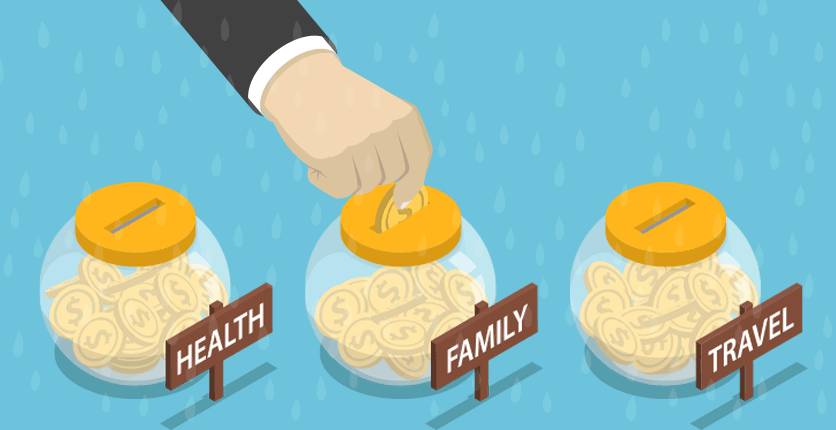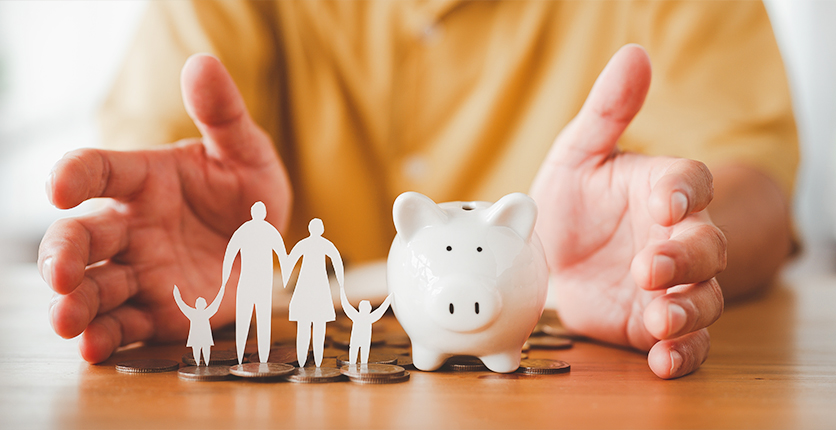More than ever during these uncertain times, it’s wise to think about putting some cash aside for unforeseen medical or household expenses. Senior wealth management consultant Karen Tang tells you why and how to save for an emergency fund, and how this money can give you peace of mind.

Q: Why set up an emergency fund if I already have personal savings and insurance policies?
Karen: An emergency fund is money that’s been set aside to help with living expenses in case of a financial catastrophe or to cover for any of life’s unexpected events. Having insurance is good but insurance is not a very liquid asset, and it may take a while for the insurance company to pay you. Additionally, there may be financial burdens – such as those that arise when the breadwinner loses his or her job – that may not be covered by insurance.

Q: What would an emergency fund help to cover?
Karen: An emergency fund is meant to cover for situations that require immediate liquidity. Emergency situations might include:
– A sudden medical crisis in the family, for instance, a dreaded disease or critical illness that not only costs one one’s job but also requires a large amount of money to treat and long-term medical care or treatment
– Loss of the breadwinner’s job for any reason
– Helping out a family member when they are in financial trouble
– Unexpected home maintenance issues or repairs
– Emergency veterinarian bills
– Unforeseen vehicle repairs
It might be tempting to use this money towards a vacation, paying off debts, a down payment for a new home and so on. That’s fine, but you should create a list of acceptable expenses that the money can be used for and be clear about what true emergencies are. The whole point of this fund is to prevent you from having to scramble for money at the last minute. You won’t need to borrow, get a loan or sell off investments prematurely if you have an adequate emergency fund in place.

Q: How much should a typical Singaporean family of four have in their emergency fund?
Karen: At least six months’ worth of living expenses, although up to 12 months’ worth is not far-fetched. A ballpark figure for the typical family is $50,000. When the Covid-19 pandemic hit, many people lost their jobs and did not have sufficient emergency funds to sustain themselves for even six months.
Q: How does one start an emergency fund?
Karen: You can set aside a lump sum or put money aside every month. Your goal should be to have it ready as soon as possible, for peace of mind. If you’re putting money aside every month, it’s smart to have an action plan, keeping the end in mind. So let’s assume you want an emergency fund of $50,000 in 15 months and you already have $20,000. You’d need to contribute $2,000 towards the fund every month.

Q: How can we make this emergency fund work hard for us while the money is just sitting in the account?
Karen: Emergencies don’t arise that often, but the whole point of planning is so you’re fully prepared when crises do occur. This emergency money cannot work too hard for you because of the risk that might be involved if you invest it – you can’t guarantee returns, for example. You also want the money to be liquid, or available immediately if you need it.
If you want to earn some gains while still maintaining the safety of the capital, you can place portions of the money in a high-interest savings account in a local bank, a SGD fixed-deposit account with a local bank (not foreign currency deposits), or Singapore Government Securities Bonds.
Q: What are some benefits to having an emergency fund?
Karen: There’s an old saying, “Money can’t buy happiness”. But if your definition of happiness is peace of mind, then money certainly plays a vital role. A solid emergency fund is a form of reassurance, as it gives you peace of mind that you can manage unforeseen expenses. By reducing financial stress, you can focus on other things. The real value of an emergency fund extends far beyond the money in the account.
Have some questions about setting up an emergency fund? Send them to magnsman@sph.com.sg!









